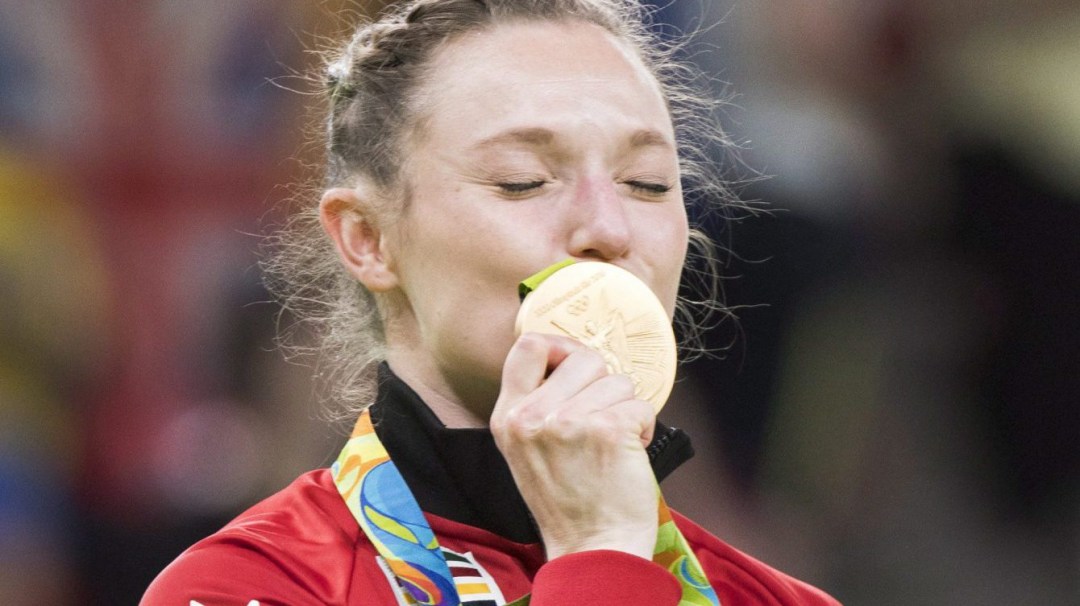Inside the numbers: Canada’s super start at Rio 2016
Nine.
That’s the number of consecutive days over which Team Canada athletes worked their way onto podiums to start the Games at Rio 2016.
It was impressive and awe-inspiring to say the least.
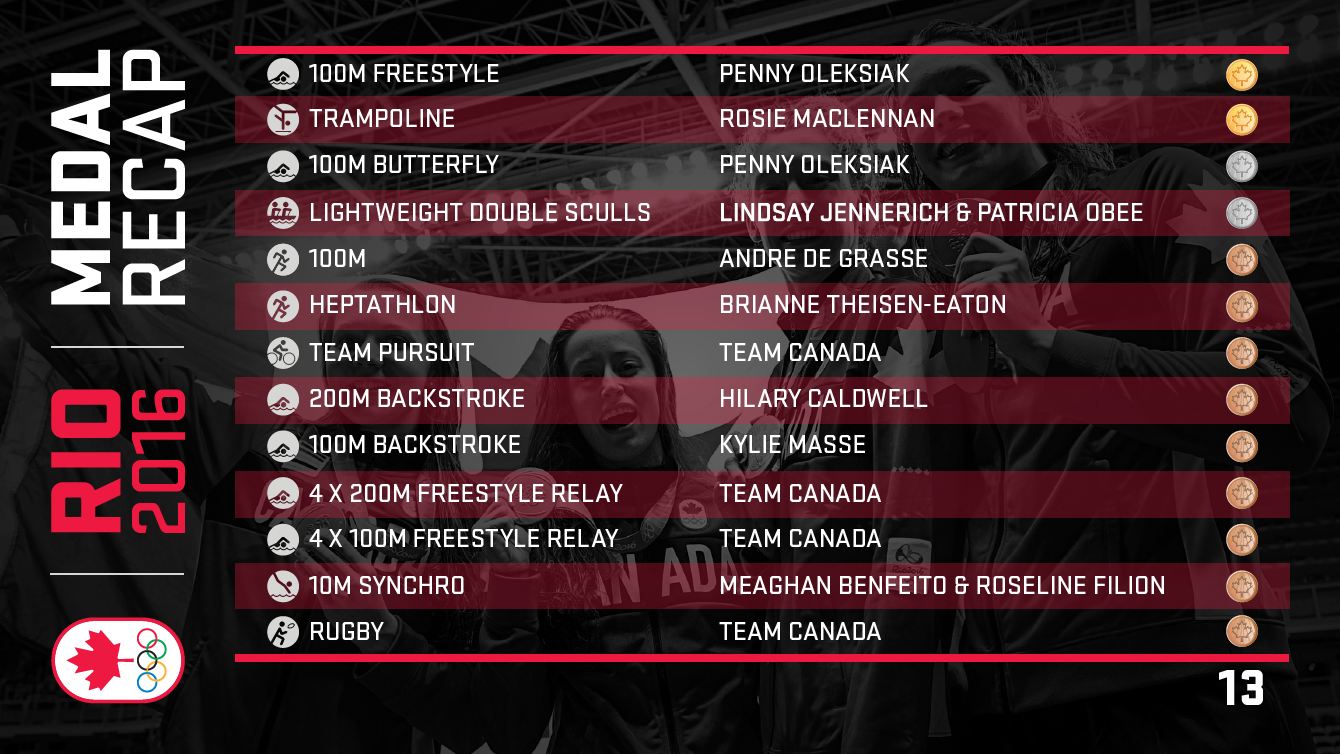
Rio 2016: Canada’s first nine days
But let’s take a moment to really put it into context:
Canada’s previous summer Games record for most consecutive days with a medal was six, achieved at Barcelona 1992 from Days 4 to 9. Even at the Olympic Winter Games, the most straight days winning medals Canada has ever had was the eight at Vancouver 2010 (Days 9 to 16) and Sochi 2014 (Days 7 to 14).
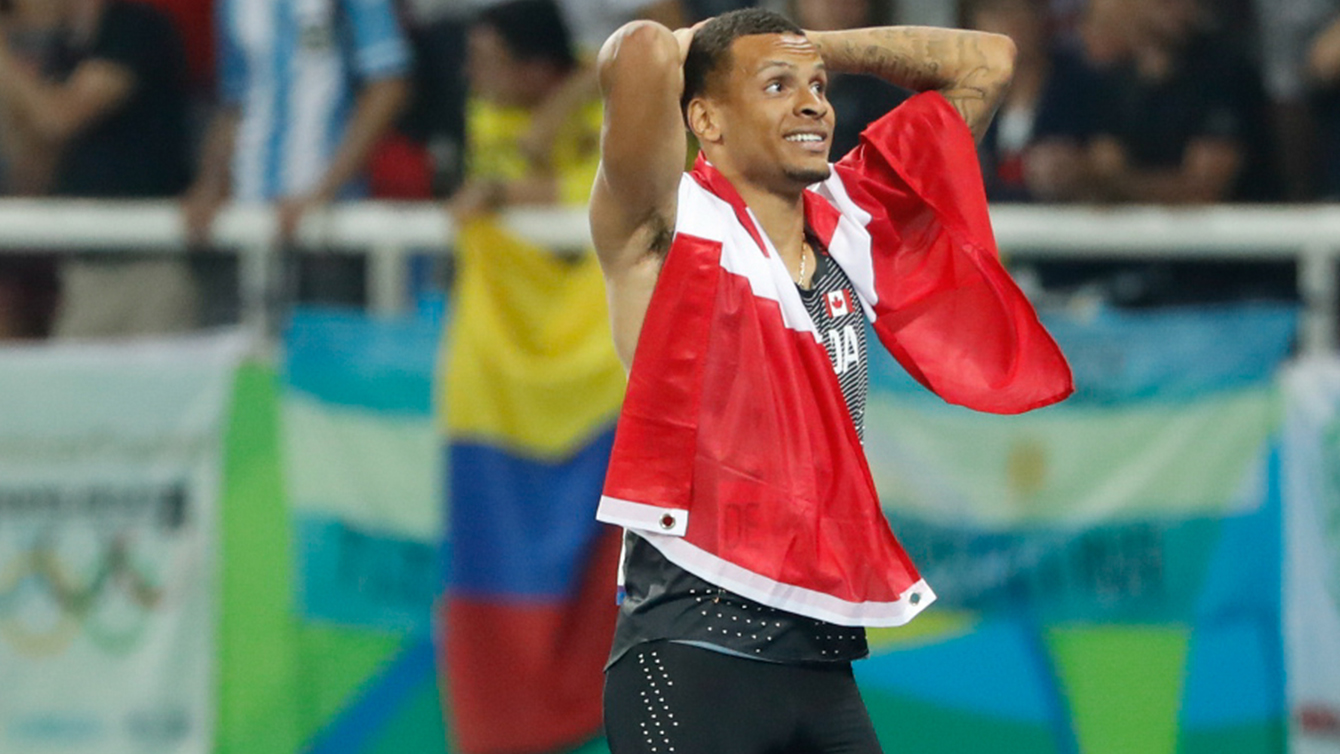
Andre De Grasse reacting to a bronze medal finish in the Rio 2016 100m final. (COC/Mark Blinch)
Over those nine days in Rio, Canadian athletes won 13 medals, including two gold, two silver and nine bronze. That’s just one shy of the 14 won over the first nine days at Atlanta 1996 (2 gold, 6 silver, 6 bronze) as Canada went on to have its best performance ever (22 medals) at a non-boycotted Games. At Los Angeles 1984, Canada had 22 medals through the first nine days before finishing with 44.
The swimming team played the biggest part in keeping the streak alive, winning six medals on six different nights.
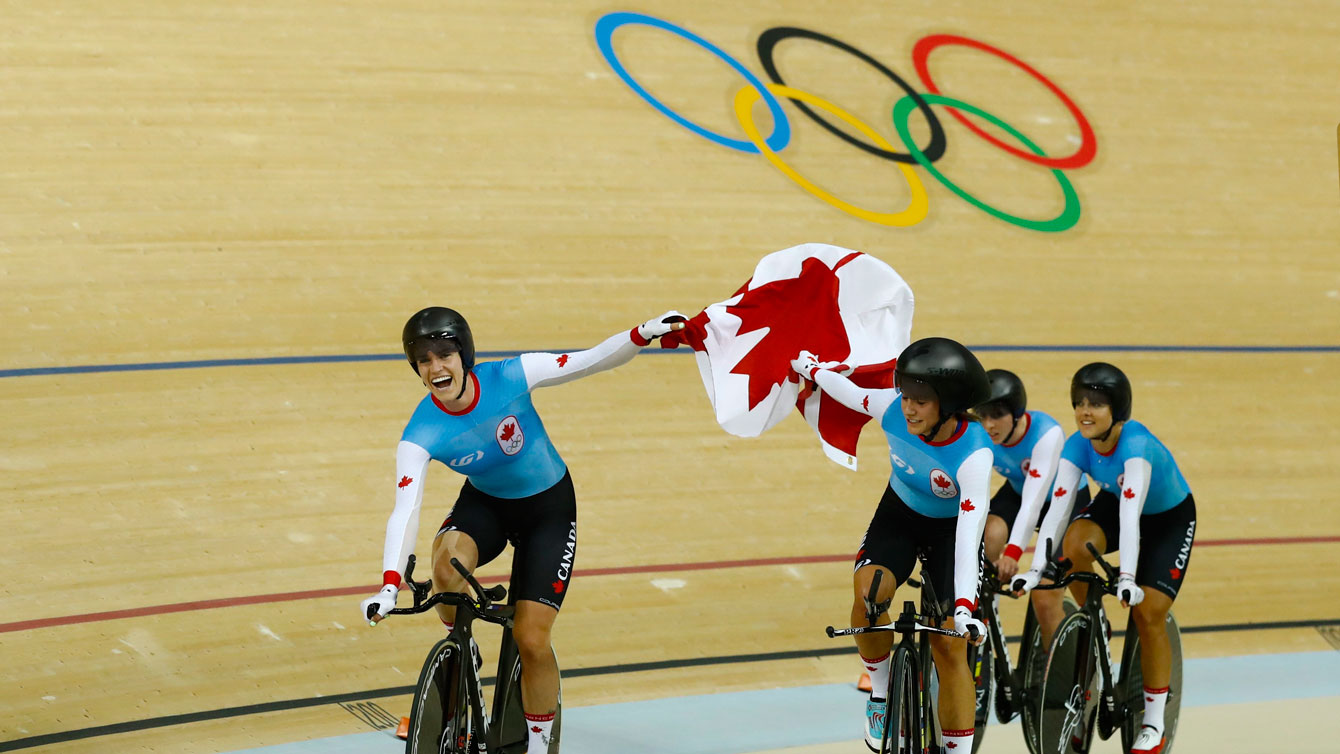
Canada’s team pursuit riders lift the flag following their Olympic bronze medal win over New Zealand in Rio de Janeiro on August 13, 2016.
There were three days with multiple medals. On Day 3, the rugby team won bronze before Kylie Masse’s backstroke bronze. On Day 7, Lindsay Jennerich and Patricia Obee won lightweight double sculls silver ahead of Rosie MacLennan’s trampoline gold and Hilary Caldwell’s 200m backstroke bronze. On Day 8, Canada got a bronze in track cycling’s team pursuit before Brianne Theisen-Eaton’s incredible comeback for bronze in the heptathlon.
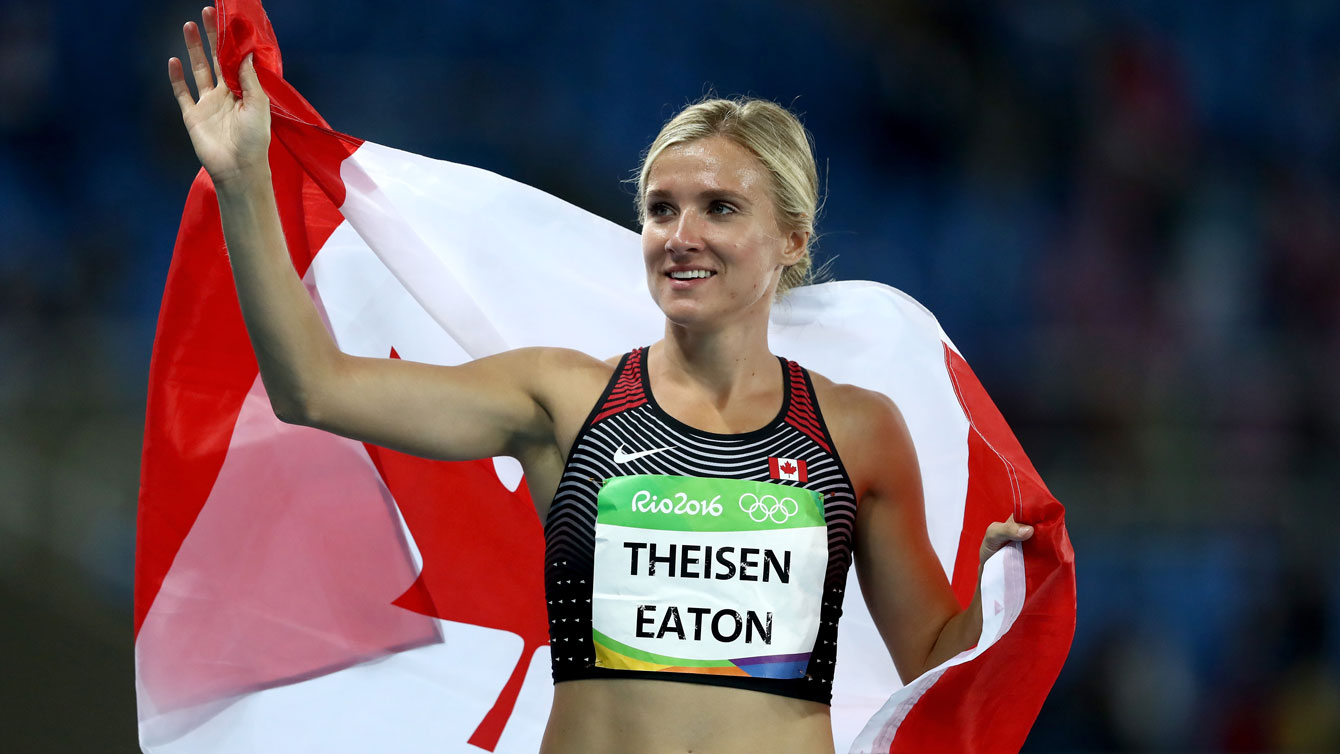
Brianne Theisen-Eaton after winning bronze in the Olympic heptathlon in Rio de Janeiro on August 13, 2016.
Twelve of the 13 medals were won by women, with the only men’s podium coming on the last day of the streak when Andre De Grasse captured bronze for Canada’s first medal in the 100m on the track in two decades.
Swimmer Penny Oleksiak contributed to four of the medals, winning gold in the 100m freestyle and silver in the 100m butterfly to go with a pair of bronzes in the 4x100m and 4x200m freestyle relays. Canada’s other multi-medallist was fellow relay team member Taylor Ruck.
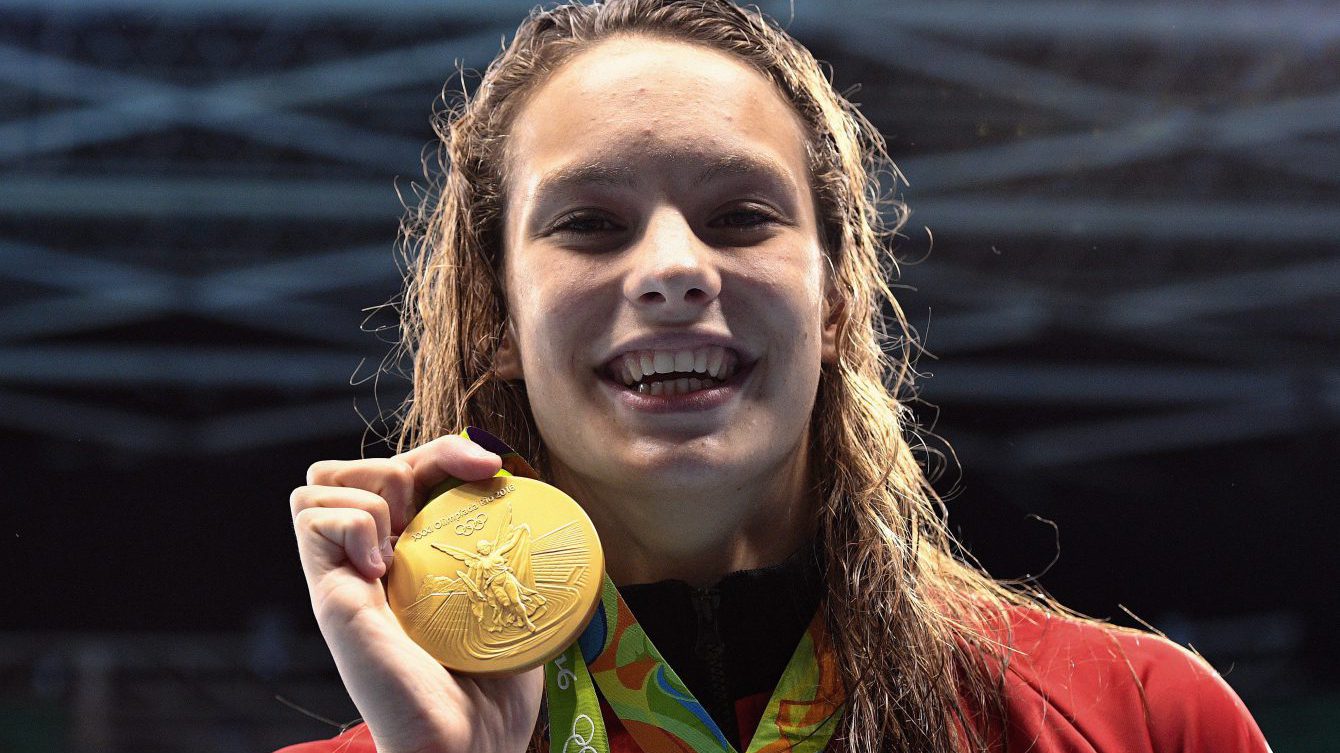
Canada’s Penny Oleksiak holds up her gold medal after her first place finish in the women’s 100m freestyle finals during the 2016 Olympic Summer Games in Rio de Janeiro, Brazil, on Friday, Aug. 12, 2016. THE CANADIAN PRESS/Sean Kilpatrick
There was one Olympic record set during the streak, with Oleksiak tying with American Simone Manuel in the 100m freestyle in 52.70.

